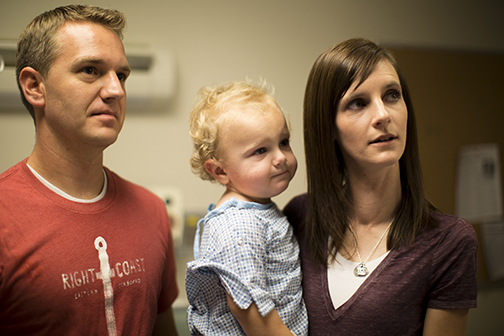What Is Living Organ Donation?

With so few organs available for transplantation, living donation is the best way we have to continue to save lives. Transplanting organs from a living donor is the best means of donation because of the following benefits:
- The quality of organs that are donated by living donors is usually better than organs from deceased donors. These organs last nearly twice as long.
- The waiting time for a patient needing a transplant can be significantly shorter.
- The procedure can be scheduled at a time that's convenient for both the donor and recipient.
- The time between removing the organ (or part of the organ) and transplanting it in the recipient is less.
- There is a lower chance of rejection. Also, the organ recipient will need fewer and lower doses of anti-rejection medication.
COVID-19 Information for Transplant Patients
Types of Living Organ Donation & Resources
Living Kidney Donation
University of Utah Health's Transplant Center offers a living kidney donation program to help patients who need kidneys find a faster donation option.
Living Liver Donation
Did you know that donating part of your liver is a safe medical procedure? Each year, we help patients who need a liver transplant find a donation from a living donor. Please contact us to learn if our living liver donation program is right for you.
Robotic (Computer-Assisted) Surgery
Surgeons at U of U Health can perform organ transplants using robotic instruments that offer advanced precision, reduced recovery time, and smaller incisions/less scarring. Learn more about the transplant robotics team.
UNOS Resources
Are you considering living organ donation but have questions about donation? Learn more by reading the American Society of Transplantation’s Live Donor Toolkit and United Network for Organ Sharing “Living Donation Information You Need to Know.
ASTS Resources
The American Society of Transplant Surgeons offers numerous resources. These include information about financial resources.
Living Donor Transplant: Hear From Our Patient
Living Donor Coordinators
The living donor coordinator oversees the coordination of care for living donors, starting at the initial intake, through the evaluation process, surgery, and follow-up care. The living donor coordinator supports the transplant team by educating prospective donors about the living donation process.
Coordinators also help care for donors throughout the donation process.
Shalei Valentine, BSN, RN, CCTC, CCTN
Living Donor Transplant Coordinator
livingdonor@hsc.utah.edu
Amanda Boyd
Living Donor Transplant Coordinator
Amanda.boyd@hsc.utah.edu
Haley Chamberlain
Living Donor Transplant Coordinator
Haley.chamberlain@hsc.utah.edu
Bailey Oldham
Living Donor Transplant Coordinator
Bailey.oldham@hsc.utah.edu
Hear From a Donor Coordinator
Independent Donor Advocate
The independent living donor advocate's (ILDA) primary focus is to help potential living donors understand the non-medical problems, challenges, and changes that donation brings. Independent living donor advocates also evaluate the donor's emotional support, social support, and financial resources.
The donor advocate is employed specifically to represent and advise the donor, protect and promote the donor's interests, and ensure that the donor's decision is informed and free from coercion. The donor advocate provides counseling and emotional support to donors and families as they proceed through the donation process.
Social Worker
Robin Cady, MSW, LCSW
Living Donor Social Work
Office phone: 801-585-2054
Locations
University of Utah Health, Living Donor Program
50 N Medical Drive
Area E, Room 2400
Salt Lake City, UT 84132
801-587-8816
Traveling From Outside Salt Lake City?
Plan Your Visit








